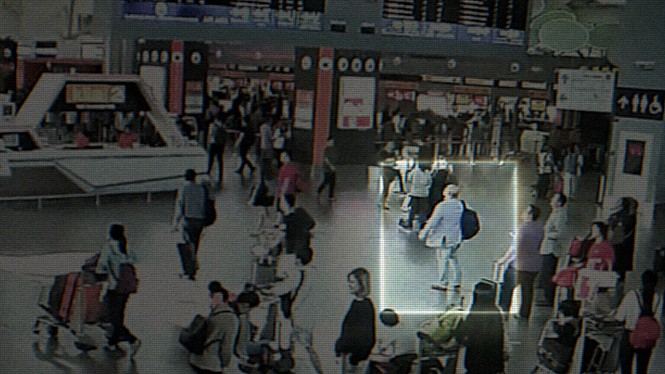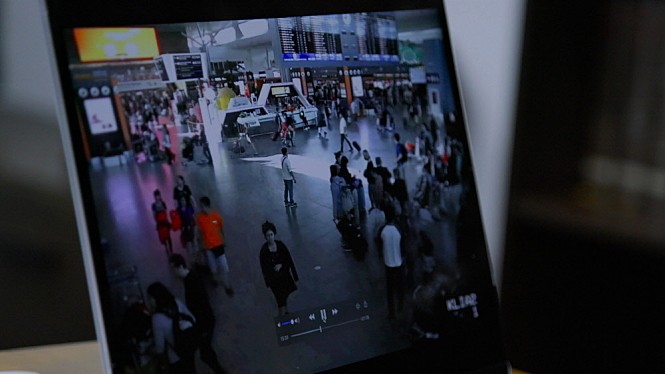Documentary film “Assassins” gives us a close look into one infamous assassination case which surprised many of us a few years ago. On February 13th, 2017, a certain prominent North Korean exile was assassinated right in the middle of Kuala Lumpur International Airport, Malaysia, and it was all the more shocking that the North Korean government got away with that in the end while also getting considerable political benefits for its current head of state.
That assassinated figure in question is Kim Jong-nam, who was the eldest son of North Korean dictator Kim Jong-il. Around the 1990s, Kim Jong-nam had been expected to succeed his father just like his father succeeded his grandfather Kim Il-sung in 1994, but, due to one humiliating public incident that occurred in 2001, he become less likely to succeed his father, and he eventually left his country while his half-brother Kim Jong-un consequently gained more favor from their father.
When Kim Jong-il subsequently died in 2011, Kim Jong-un was only a 28-year-old college graduate at that time, but it did not take much time for him to take his country under full control. First, he did a swift and extensive purge upon his government as well as the North Korean military for solidifying his political status, and he did not even hesitate to execute one of his uncles, who was incidentally one of the most powerful figures in the regime of his father.
As Kim Jong-un’s older brother, Kim Jong-nam was certainly another potential political threat to Kim Jong-un, but Kim Jong-nam happened to be under the protection of the Chinese government. While fully supporting Kim Jong-un and his new regime, the Chinese government also wanted to keep Kim Jong-nam as a sort of political safety measure just in case, and Kim Jong-un and his North Korean government certainly did not dare to eliminate Kim Jong-nam as long as he remained in China.

However, as an international journalist interviewed in the documentary tells us, the situation became more perilous for Kim Jong-nam as he was frequently quite vocal about his opposition to his younger brother’s regime. He later pleaded to Kim Jong-un that he would be silent in exchange of safety and freedom for him and his family, but his assassination was eventually executed when he happened to be outside China at that time.
As many of you remember, the aftermath of Kim Jong-nam’s assassination was pretty messy to say the least. Once the Malaysian Police embarked on the investigation right after his death, a group of North Koreans were identified as suspects, but most of them already left Malaysia, and the rest of these North Koreans, who were held in Malaysia for a while, were later allowed to return to North Korea after the following diplomatic tug-of-war between the North Korean government and the Malaysian government.
Mainly for saving its face, the Malaysian government came to focus more on punishing Siti Aisyah and Doan Thi Huong, two different South Asian women assumed to be manipulated and then exploited by those North Korean suspects. While Aisyah was from some rural area of Indonesia, Huong was from Hanoi, Vietnam, and, according to their respective testimonies, they even did not know about each other when they respectively did what they were hired to do as a part of “prank show”.
The documentary later details how each of these two unfortunate young ladies unwittingly got themselves involved in the assassination plan. As a poor woman who really needed money for herself and her family in Indonesia, Aisyah did not hesitate when one of the North Korean suspects approached to her with a seemingly lucrative offer. In case of Huong, she happened to get a similar offer while trying to find any breakthrough for her future acting career in Hanoi, and both she and Aisyah did not suspect anything while they subsequently ‘performed’ a number of pranks in several public spaces including Kuala Lumpur International Airport. After all, they got paid as much as promised, and what they did looked pretty harmless on the surface.
However, what Aisyah and Huong were instructed to do on that fateful day of February 2017 was not harmless at all. They simply caught Kim Jong-nam off guard as suddenly approaching to him from the behind and then touching his face via their hands, but their hands were respectively covered with the two different components of VX nerve agent. Once these two components were mixed on Kim Jong-nam’s face, the resulting VX nerve agent, which can be very lethal even in a very small amount. swiftly worked upon his body, and he eventually died only a few hours later.
As following the subsequent trial of Aisyah and Huong during its second half, the documentary sharply points out how unjust their legal situation was in many aspects – and how impertinently the North Korean government evaded any responsibility while further solidifying its political status. With no one to threaten his position, Kim Jong-un has continued his reign during next several years, and the Chinese government and other powerful governments around the world quickly sanctioned him as another major international political player.
On the whole, “Assassins” feels rather incomplete as its main subject is still a story to be continued, but director/co-producer Ryan White did a competent job of presenting the main subject with enough intrigue and information. As a South Korean audience who is fairly familiar with how dangerous and aggressive the North Korean government has been during last 61 years, I must tell you that what is shown in the documentary did not surprise me much, but it is still an engaging documentary nonetheless, and I recommend it especially if you are interested in knowing more about its main subject.









